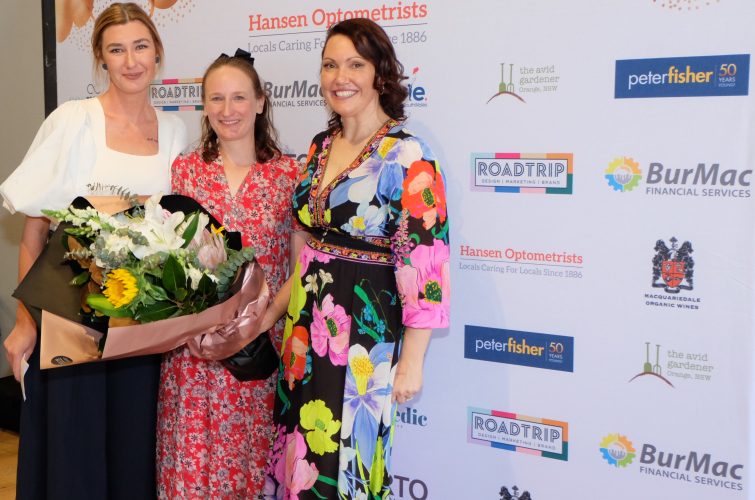 L-R Ashleigh Bock, Peter Fisher Real Estate, Carmen Gould, Hero of the Year and Ami Zielinski, Central West Mums – Diana Smith Photography
L-R Ashleigh Bock, Peter Fisher Real Estate, Carmen Gould, Hero of the Year and Ami Zielinski, Central West Mums – Diana Smith Photography
Carmen was keen to start fostering for some time before they dug in, but Nick agreed to come on board when he saw a news story about a fostered girl beaten by her carer, realising they can easily do much better than that.
Online training and support

They both completed formal training through the Department of Communities and Justice (DCJ) and other courses online. Carmen also did lot of training online through My Forever Family, which helps NSW carer-families across with training and issues.
“We were pretty nervous about doing the training, then we didn’t feel prepared to foster but of course no course can cover all real-life situations and be tailored for all the fostering scenarios, different trauma-types or emergency situations.”
Carmen and Nick’s bond and desire to make this work for the children has been essential, and support and resources for their many needs is slim, but they have learned to know when to take a walk or get some fresh air.
Much of the support they had on-line during COVID has ended so now the close-knit foster families in Parkes support each other.
The growing Parkes foster community

Carmen and Nick have, in their relatively short time as carers, fostered 28 children and when Carmen realised that there are too few carers in Parkes, she convinced her close friend Alice to take some of her children on, so now there are three foster families.
“Some of it is for respite for a weekend or school holidays, some has been emergency care for three to six months. We currently have two long term kids (aged three and one year old) and we are just trying to work out if we can manage any more – but first we need a bigger car.”
Patience is a virtue
Carmen says people often tell her they are not patient enough to become a carer, and she is quick to say she’s learning to be more patient too, and she says you just need to try your best.
“These kids need love, structure and routine – and this hard work – but is rewarding work watching the children come alive and even letting them watch you make mistakes.”
Carmen is emphatic that daily act of juggling children at different schools and day-care centres, trying to be everything to everyone, finding time to look after yourself and keeping the structure moving forward is essential for the children in their care.
It is also important to develop relationships with the parents, via Mothers and Fathers Day cards, Facetime, contacting grandparents and siblings, supervised contact and weekly photos as all the research points to the importance of those bonds for the child’s sense of identity.
“You’ve got to love the parents or the child will think you don’t love part of them.”
It takes a whole community

At one stage, when Carmen had nine kids nine years and younger in her care, the DCJ agreed to purchase a whiteboard she could rule-up a weekly planner for school, sport, case-workers, appointments and home work.
Carmen gets teary just thinking about all the community support she got that time from the flexibility of schools; meals delivered; offers of lifts to sporting events and dropping them home; deliveries sandwiches, muffins and snacks to freeze for lunch boxes; cleaning; ironing and even bus hire and says she feels very blessed.
The Carer’s Cupboard and CWA
A lot of children come to their carers with very little or what they’ve got doesn’t fit or is unwearable so Carmen has started The Carer’s Cupboard under the CWA, (where her friend Alice is President) so that each child coming into care receives clothing in their size, a bag of toiletries and a school backpack with basic needs.
“She spoke to the CWA and they were interested – I’m very grateful for that.”
The rewards keep coming

For those who are fostering, Carmen encourages you to keep going and be kind to yourself as these children do not always act as expected because of their backgrounds, but the rewards will soon be there and you won’t regret a single day with them.
***